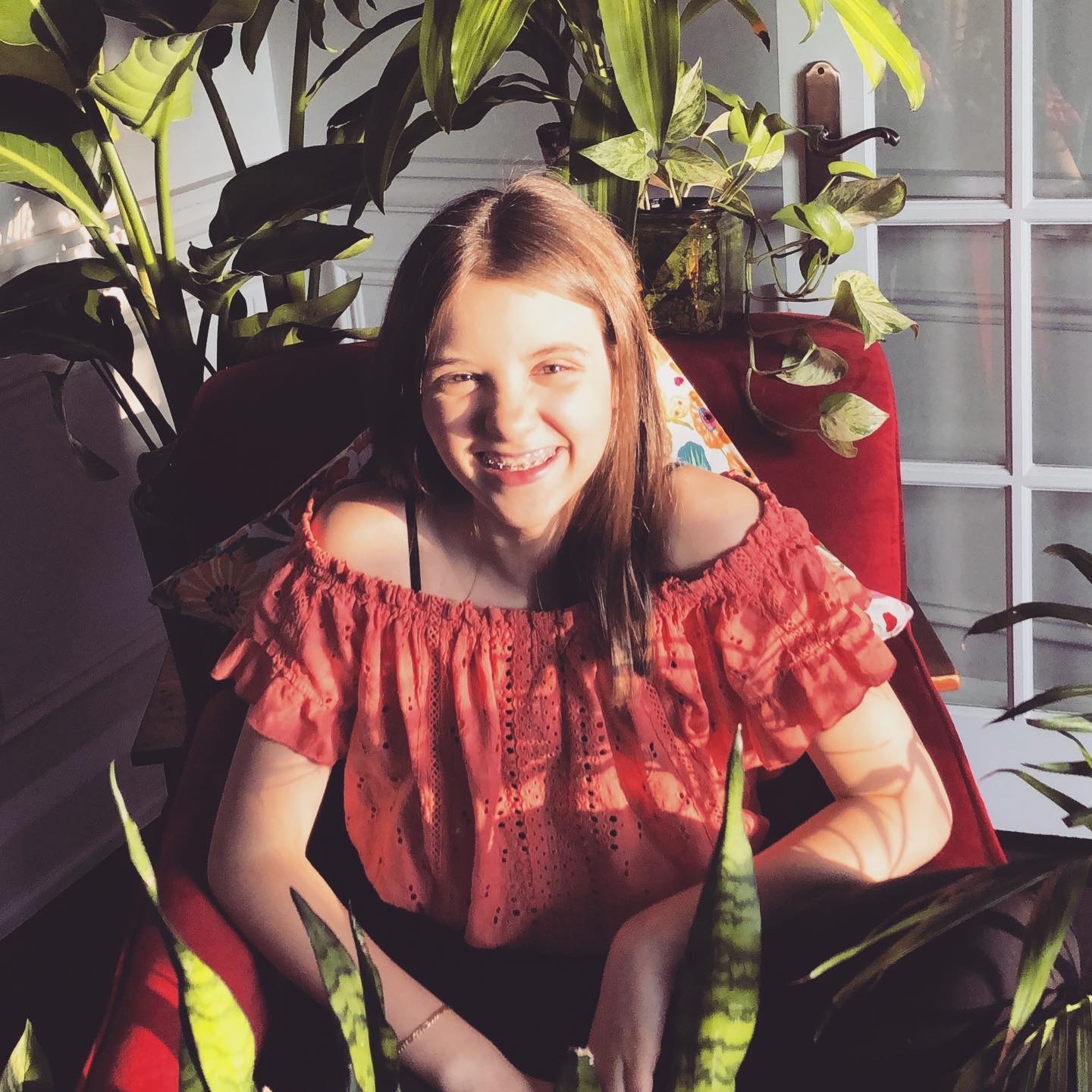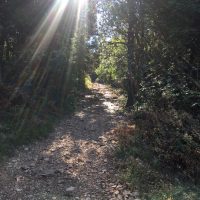
I was still living in West Palm at the time—alone, except for my eight-month-old daughter, Nina. We were in the same house we had shared with my husband, her father.
You see, Mike left us after a six-month battle with cancer. Cancer won.
Quietly mourning, I was somehow managing to continue working and taking care of Nina.
Her room was cozy and filled with the necessities. She had received a pink, soft plush bunny that became her companion and lay next to her when she slept; she carried it with her as she got older. Nina had become obsessed with the satin tag on her purple blanket. During her nightly feeding, she’d lay in my arms and stretch out her hand to touch it, repeatedly. Perhaps it was her subtle way of getting comfort.
After a few months, I had lost the ability to take care of myself, and I felt unable to bond with my daughter. I found my job meaningless and most people superficial. Since I didn’t understand my own emotions, I wasn’t equipped to understand the emotions of being a mother. I was filled with numbness, and it took me months to feel anything.
Most days came and went and were forgotten. My husband’s death was slowly taking away any good memories that we had together, and I was struggling to switch that off. Each day became mundane, with me only waking up because I was responsible for taking care of my daughter. Everywhere I went, Nina came with me, almost in an obsessive sort of way. I was afraid for us to be separated.
Loving my daughter felt foreign to me. I felt immense love for her while I was pregnant, and then the overwhelming sadness and pain of Mike’s illness overpowered my ability to love anyone else. I unknowingly shut down my emotions, for survival’s sake, and I was having difficulty turning them back on.
I didn’t realize that I wasn’t bonding with my daughter. I was doing everything that a mother should be doing with her newborn, but after finally realizing that I wasn’t doing enough to give her what she needed, I felt even more sadness. I became hard on myself, telling myself that I couldn’t do it.
I can’t be a mother. I don’t know how.
I was taking care of Nina, but even though I felt that I wasn’t emotionally connecting with her, I didn’t have the emotional capacity to change that. I didn’t know how to love her more. I didn’t even know how to love myself. Consumed with anger and resentment, I isolated myself, leaving my friends and family unable to approach me or console me. I didn’t answer the phone. I didn’t leave the house. I didn’t know how to live. I was trying to ignore the chaos in my head.
Within six months, I had completely lost my way.
Friends and acquaintances started telling me, “You need to start dating,” “You need a boyfriend,” “You’re not over it yet?” and “You have to find the right tribe.” Staying busy didn’t work. That just covered my layers of pain. Time didn’t help me heal either.
It was the deep work of recognizing how my emotions were affecting my body that finally lead me toward healing my pain.
One day, a friend from my office noticed that I needed some help and recommended a counselor named Peggy. I started to see her every week, and after a while I actually started looking forward to my sessions. When I was with her, I was able to express the many feelings I had bottled up and discover ways of handling my situation and feelings that I didn’t know how to express.
I worked with Peggy for a year. She had a soft, kind face and a glowing smile and silver hair. During my first session, I sat on the couch across from her and she asked me why I was there. I said, “My husband died, and I have a baby,” followed by an emotional breakdown.
She sat quietly while I spoke, cried, and hyperventilated. She listened and observed without interrupting. It was as though I had been holding my breath and finally found enough oxygen to breathe. I had weekly sessions with Peggy, and each session was different. Some days I cried. Other days I was angry. Other days I didn’t want to talk.
Some days, I didn’t want to see her at all.
With regular weekly counselling sessions, the fog eventually started to lift, and I started feeling less anxious and more capable. I started taking better care of myself, and could see that I was bonding more with my daughter. Each small change created a ripple effect of positive changes.
When we struggle through difficult times, we often lose our way. And once we find our way, we are resurrected as someone we don’t always recognize. We discover a deeper connection to ourselves and to the people we love the most. And if we’re lucky, we might even discover our true purpose.
This is what I’ve discovered:
I love deeply. I hurt deeply. And forgiveness was the beginning of healing pain. All the shattered pieces make up who I am, and I continue to walk the path of my life with fortitude.
Every day since my daughter was born, I have had to learn how to love her and cherish her deeply in my heart while I learned how to love myself again. She is the glue that has defined the purpose of my shattered pieces. Although the shards are a reminder of the painful journey, the deep love I have for Nina has helped me rise up with a new brightness.
So who am I?
I’m a compassionate warrior who has fought off tyrants and created a life filled with courage and resilience. And you might be, too.
~











Read 10 comments and reply